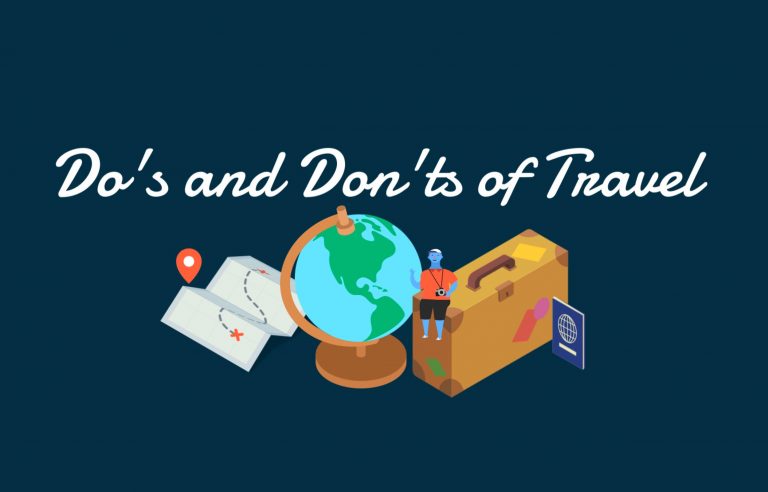Zombie Bunny is Reader-supported and may earn an affiliate commission through links on our site.

Unlock Your Financial Freedom: The Digital Nomad’s Guide to Money Management
Master your finances on the go with our expert advice on digital nomad money management. Discover the secrets of financial freedom even while living the nomad life. #DigitalNomad #MoneyManagement #FinancialFreedom
Achieve financial freedom as a digital nomad with our comprehensive guide. Discover how to navigate unique financial challenges such as fluctuating income, dealing with multiple currencies, and understanding tax implications. Learn how to set clear financial goals, create a flexible budget, choose the right financial tools, and plan for your retirement. Equip yourself with the necessary knowledge to manage your finances effectively, diversify your income streams, and safeguard your financial information. Make your money work for you, wherever you are, and unlock the freedom to live your nomadic lifestyle to the fullest.
Introduction to Financial Freedom as a Digital Nomad
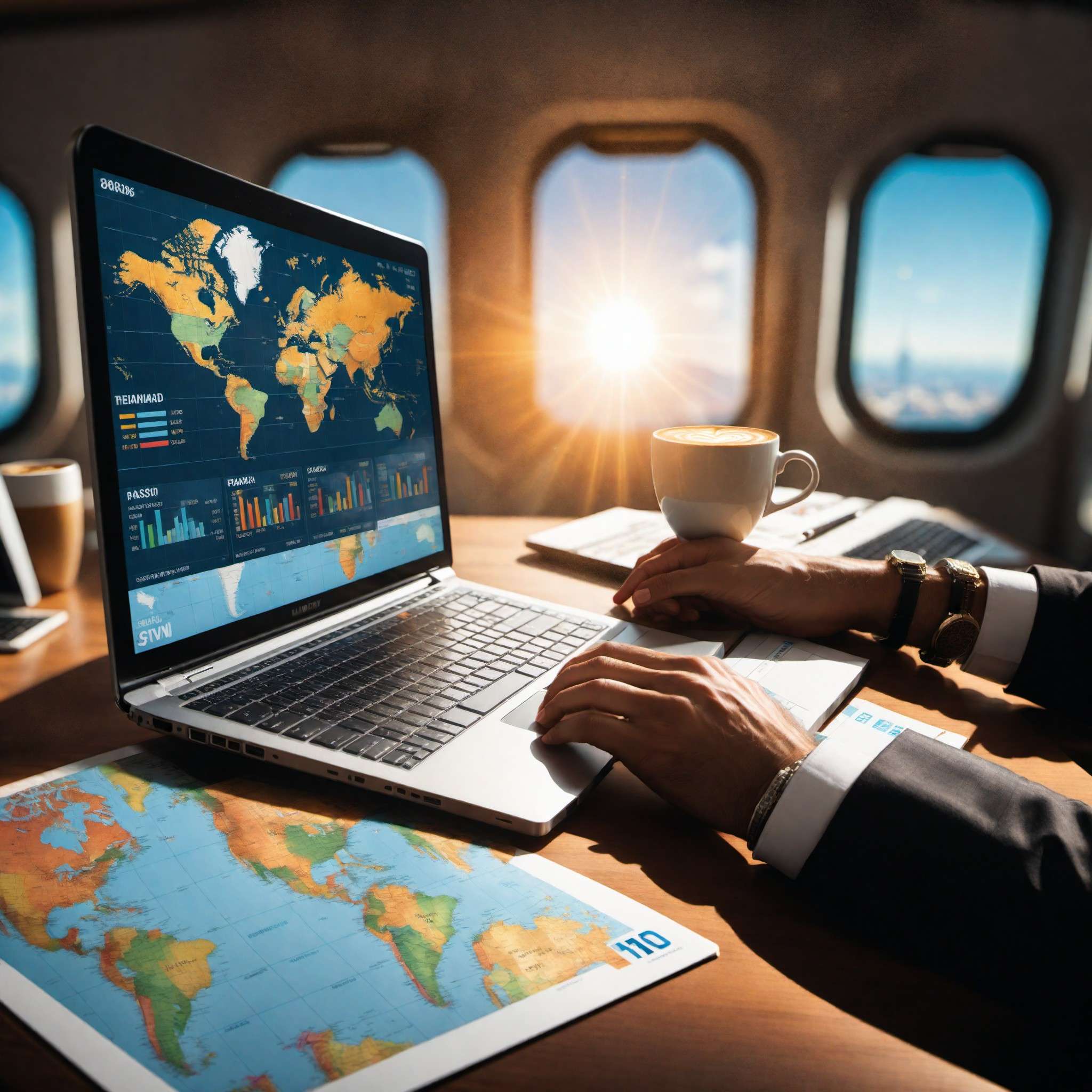
© Copyright , ZombieBunny.Org
Understanding financial freedom
Financial freedom, a concept that many aspire to, is more than just having money. It’s the liberation from the cycle of earning and spending, creating a life where money serves you instead of you serving it. As a digital nomad, understanding and achieving financial freedom becomes even more critical. It’s about having the ability to maintain your lifestyle without a regular paycheck, allowing you the freedom to travel, work from anywhere, and spend your time as you choose.
Financial freedom doesn’t mean you must be wealthy. Instead, it means you have control over your finances and can manage them effectively to support your nomadic lifestyle. It’s about creating and managing multiple income streams, managing expenses, knowing how to invest wisely, dealing with taxes across different countries, and protecting your income from risks. Achieving financial freedom requires discipline, planning, and the right knowledge. As you navigate through this guide, consider how each strategy aligns with your digital nomadic lifestyle, and remember, the journey to financial freedom is a marathon, not a sprint.
The digital nomad lifestyle
The digital nomad lifestyle is a growing trend that’s radically changing the concept of work and travel. It involves individuals leveraging technology to work remotely and live an independent and nomadic lifestyle. A digital nomad could be working from a beach in Bali one day, a cafe in Paris the next, or a co-working space in New York. This lifestyle is driven by the desire for freedom, flexibility, and the thrill of exploring new cultures and experiences.
However, becoming a digital nomad is not just about packing your laptop and hitting the road. It requires careful planning, especially when it comes to managing finances. Unlike traditional jobs with steady paychecks, digital nomads often work on a project basis, which means income may not always be consistent. Additionally, living and traveling across different countries presents unique financial challenges, from dealing with exchange rates and international bank transactions to understanding local cost of living and tax laws. It’s essential for digital nomads to have a solid grasp on their finances to maintain this lifestyle sustainably. This guide will provide you with detailed information and practical tips on managing your money as a digital nomad, helping you unlock your financial freedom.
The intersection of finance and digital nomadism
The intersection of finance and digital nomadism creates a unique sphere that requires special financial strategies. Living a digital nomadic lifestyle means you have the freedom to work from anywhere in the world. However, this freedom comes with its own set of financial challenges. Having an unpredictable income flow, dealing with multiple currencies, navigating foreign tax systems, and managing travel costs are all part of the equation.
To successfully navigate this intersection, digital nomads need to be proactive and disciplined with their finances. This includes setting clear financial goals, building a flexible budget, choosing the right financial tools, understanding tax implications, and planning for retirement. It’s also about creating a safety net, which includes having a robust emergency fund, obtaining the right insurance, and protecting oneself from financial fraud. By understanding these challenges and implementing the right strategies, digital nomads can not only maintain their lifestyle but also achieve financial freedom. This guide aims to equip you with the necessary knowledge and tools to manage your money effectively as a digital nomad.
Establishing Your Financial Goals
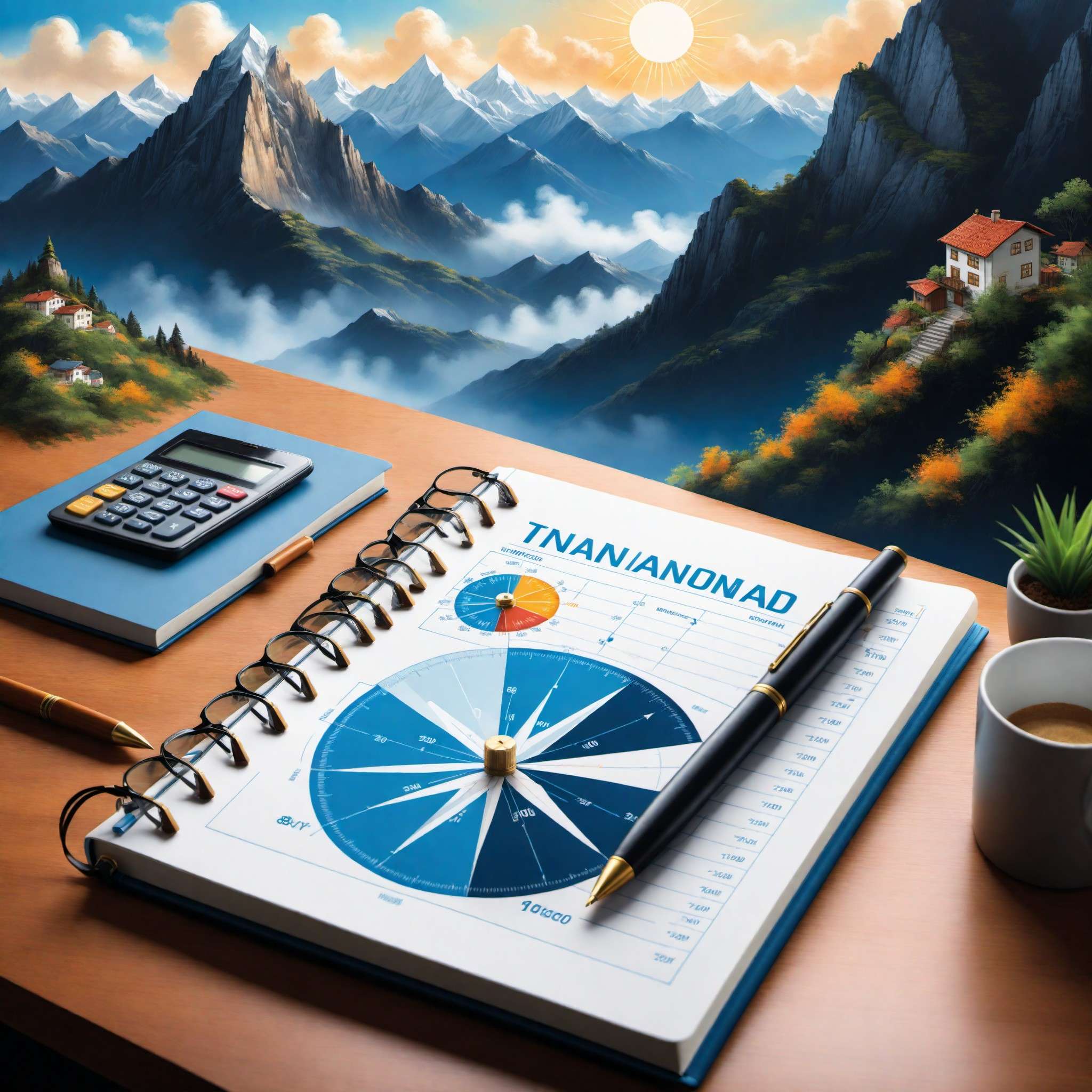
© Copyright , ZombieBunny.Org
Importance of financial goals
Setting clear and well-defined financial goals is a crucial step towards achieving financial freedom, especially for a digital nomad. These goals serve as a roadmap, guiding your financial decisions and helping you stay on track. They provide a clear picture of where you want to be financially and the steps needed to get there. Whether it’s saving for a round-the-world trip, building a robust emergency fund, or investing for passive income, each goal serves as a milestone on your journey to financial independence.
Financial goals go beyond just the numbers; they are closely tied to your lifestyle and aspirations. As a digital nomad, your goals might differ from traditional ones. You may prioritize building a location-independent business, creating multiple streams of income, or saving for experiences rather than physical assets. Regardless of what your goals are, having them clearly defined gives purpose to your financial activities and motivates you to make informed and strategic decisions. Remember, these goals are not static but should evolve as your circumstances and aspirations change. This guide will help you set and manage your financial goals, a key step in unlocking your financial freedom as a digital nomad.
Setting SMART financial goals
Setting SMART financial goals is a powerful tool that can significantly enhance your financial planning. The SMART acronym stands for Specific, Measurable, Achievable, Relevant, and Time-bound. By setting goals that adhere to these principles, you can create a clear and actionable plan for your financial future.
Specific goals are well-defined and clear. Instead of saying “I want to save more money,” a specific goal would be “I want to save $10,000 for an emergency fund.” Measurable goals allow you to track your progress. If your goal is to save $10,000, you can measure progress by tracking how close you are to reaching that amount. Achievable goals are realistic and attainable. It’s crucial to ensure your goals are within your means and capabilities. Relevant goals align with your broader financial plans and personal values. If your aim is to live a location-independent lifestyle, your goals should support this aspiration. Time-bound goals have a deadline. By having a time limit, you create a sense of urgency that can motivate you to stay on track.
Applying the SMART framework to your financial goals as a digital nomad can provide structure and direction, making the process of financial planning more focused and effective. This strategic approach can help you make tangible progress towards financial freedom.
Aligning financial goals with your lifestyle
Aligning your financial goals with your lifestyle is a critical aspect of effective money management, particularly for a digital nomad. Your lifestyle choices significantly impact your financial needs and goals. For instance, if your digital nomadic lifestyle involves moving between high-cost cities, your financial goals might involve creating a larger travel budget or finding higher-paying remote work. Conversely, if you prefer low-cost destinations, your goals might focus more on saving or investing.
Your lifestyle also influences your income streams. If you prefer slow travel, you might have the ability to take on long-term projects or even establish a location-independent business. On the other hand, if you’re constantly on the move, you might prefer short-term gigs or passive income sources.
Moreover, your lifestyle can affect other financial areas like insurance needs, tax planning, and investment choices. For instance, frequently moving between countries may require specific insurance coverage or necessitate a more comprehensive understanding of international tax laws.
In essence, your lifestyle and financial goals should not exist in separate silos but should be closely interwoven. This alignment ensures that your financial plan supports your lifestyle and enables you to live it sustainably. This guide will provide you with the necessary tools and knowledge to align your financial goals with your unique digital nomad lifestyle, paving the way towards financial freedom.
Creating a Nomad-Friendly Budget
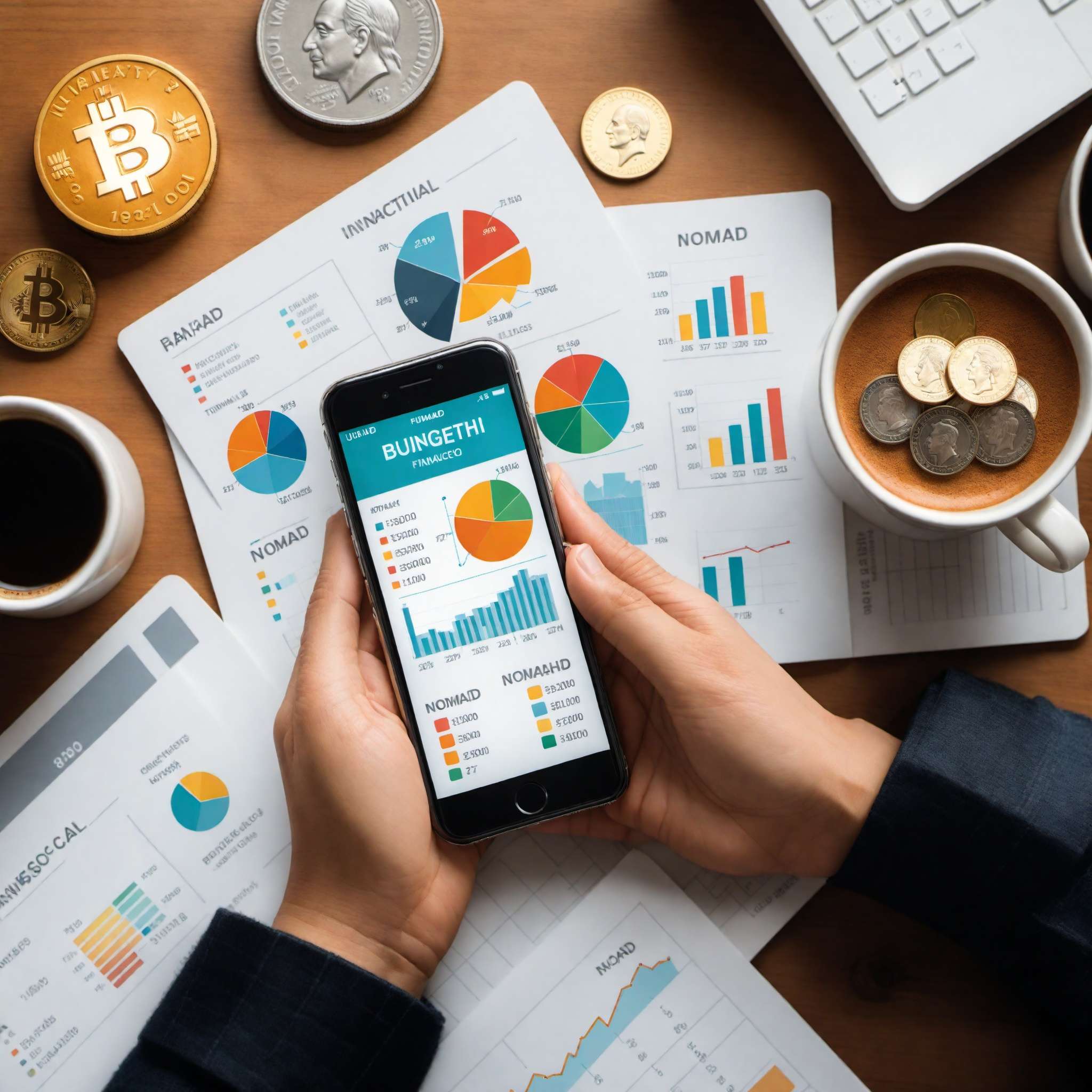
© Copyright , ZombieBunny.Org
Understanding digital nomad expenses
Understanding your expenses as a digital nomad is a critical first step in creating a nomad-friendly budget. Your expenses as a digital nomad may differ significantly from a traditional lifestyle, often including areas such as travel, accommodation, coworking spaces, insurance, and technology needs.
Travel expenses encompass airfare, local transportation, visas, and other related costs. Accommodation costs vary widely depending on your choices, ranging from budget hostels to luxury rentals or even purchasing a property abroad. Coworking spaces, particularly in more expensive cities, can be a significant cost but provide reliable internet and a conducive work environment.
Insurance is another key expense. As you move across different countries, having comprehensive travel and health insurance is crucial. Factor in costs for regular check-ups, vaccinations, and any medication you might need.
Technology costs include your digital tools – laptop, smartphone, and possibly extra equipment like a portable monitor or noise-cancelling headphones. Don’t forget to include software subscriptions, online storage, and a reliable VPN.
Daily living expenses such as food, entertainment, fitness, and personal care can also vary greatly depending on your location and lifestyle choices. Remember, these costs can fluctuate based on the cost of living in your current location.
Understanding these expenses will provide a realistic picture of your financial needs as a digital nomad, forming a solid foundation for your budgeting process.
Creating a flexible budget
Creating a flexible budget is key for digital nomads, whose income and expenses can fluctuate significantly based on work and travel patterns. A flexible budget adapts to changes in your income and expenses, providing a more realistic perspective of your financial situation. It allows you to allocate resources according to your current needs and priorities, rather than sticking to a rigid plan.
Start by identifying your fixed expenses, such as insurance, software subscriptions, or loan payments. Next, estimate your variable expenses like travel, accommodation, food, and entertainment. Since these costs can change based on your location and lifestyle, they require more flexibility.
Then, account for your income. If you have a stable income source, great! If not, estimate based on past earnings and potential gigs. Always plan for a worst-case scenario to avoid being caught off guard by a lean month.
Remember to factor in savings and investments. As a digital nomad, building a financial cushion is crucial for dealing with unexpected expenses or income fluctuations.
Finally, review your budget regularly to adjust for changes in your income, lifestyle, or financial goals. There are numerous budgeting apps and tools specifically designed to handle different currencies and track expenses on the go, making them ideal for digital nomads.
A flexible budget is not a license to overspend but a tool to manage your money effectively in a changing environment. It’s about making your money work for you, not the other way around.
Budgeting tools for digital nomads
In today’s digital age, numerous budgeting tools can simplify money management for digital nomads. These tools can help you track expenses, manage multiple currencies, plan for future spending, and even save for financial goals.
Apps like Mint and YNAB (You Need A Budget) allow you to link multiple accounts, track expenses, set budgeting categories, and provide insights into your spending habits. They can also send alerts for upcoming bills and low balances.
For dealing with multiple currencies, tools like Trail Wallet and Toshl Finance come in handy. They allow you to track expenses in different currencies, making it easier to manage your finances across countries.
Apps like PocketGuard can help with planning future spending by showing you how much you have left to spend after accounting for bills, goals, and necessities.
For saving and investing, tools like Acorns and Digit can automatically round up your purchases and invest the difference or move it into a savings account. This can be a painless way to build up savings or investment portfolios over time.
Before choosing a tool, consider factors like ease of use, cost, security features, and integration with other financial tools you use. Remember, the best tool is the one you’ll consistently use. By leveraging these digital tools, you can create a robust and flexible budget that supports your nomadic lifestyle and brings you closer to financial freedom.
Choosing the Right Financial Tools

© Copyright , ZombieBunny.Org
Banking for digital nomads
Banking for digital nomads can be a complex area to navigate. Traditional banking systems often do not cater to the unique needs of those living a nomadic lifestyle, such as dealing with multiple currencies, making international transfers, or accessing funds from different countries. However, with the growth of digital banking, there are now several options that make banking more nomad-friendly.
Online banks and financial technology platforms offer services that can be managed entirely online, allowing you to bank from anywhere in the world. These institutions often provide features like multi-currency accounts, competitive foreign exchange rates, low or no foreign transaction fees, and worldwide ATM withdrawals.
Examples of such platforms include Revolut, TransferWise, and N26. Some of these platforms also offer budgeting tools, instant payment notifications, and the ability to freeze your card instantly if it gets lost or stolen, adding an additional layer of security.
It’s also vital as a digital nomad to have multiple banking options to ensure access to your funds if there’s an issue with one of your accounts. Consider having accounts in different financial institutions and always keep a backup card in a safe place.
Remember, while digital banking offers many conveniences, it’s crucial to consider factors like customer service, security features, and the stability of the financial institution. It is always wise to do thorough research and choose the banking solution that best fits your nomadic lifestyle and financial needs.
Credit cards and digital wallets
Credit cards and digital wallets are indispensable tools for digital nomads, facilitating seamless transactions across borders. They offer convenience, security, and often come with additional benefits that can enhance your nomadic lifestyle.
When choosing a credit card, look for cards that offer no foreign transaction fees, competitive exchange rates, and worldwide acceptance. Some cards also offer travel rewards, cash back, or points that can be redeemed for flights, accommodation, and other travel-related expenses. Examples include the Chase Sapphire Preferred Card or the Capital One Venture Rewards Credit Card. Additionally, ensure that your credit card provider offers robust fraud protection and 24/7 customer service.
Digital wallets like PayPal, Apple Pay, or Google Wallet offer another layer of convenience and security. They allow you to make purchases or send money online without sharing your card details with the vendor. They can also store multiple cards and bank accounts, making it easy to manage your finances in one place.
Another benefit of digital wallets is the ability to pay with your phone, even if you forget your card. Some digital wallets also offer peer-to-peer payments, making it easy to split costs with travel companions.
While these tools offer convenience, it’s crucial to use them responsibly. Always keep track of your spending, pay your credit card bills on time to avoid debt, and ensure your digital wallets are secured with strong passwords. With the right use, credit cards and digital wallets can be powerful tools in your journey towards financial freedom.
Understanding cryptocurrency
Understanding cryptocurrency can be a game-changer for digital nomads. Cryptocurrencies like Bitcoin, Ethereum, and many others, are decentralized digital currencies that use cryptography for security. They operate independently from a central bank, which can offer a level of freedom and flexibility appealing to digital nomads.
Cryptocurrencies can be used for a wide variety of transactions, from purchasing goods and services online to investing and even receiving payment for work. For digital nomads, one of the biggest advantages of using cryptocurrencies is the ability to make and receive payments anywhere in the world without the need for currency conversions or international transfer fees.
Additionally, cryptocurrencies can offer a level of privacy not always available with traditional banking or credit card transactions. However, they also come with their own set of risks, including high volatility and potential security issues. The regulatory environment for cryptocurrencies also varies widely around the world and can be a complex area to navigate.
If you’re considering using or investing in cryptocurrencies, it’s crucial to do your research and understand the risks involved. Consider seeking advice from financial advisors knowledgeable in this area. Cryptocurrencies are not for everyone, but with the right knowledge and approach, they can be a valuable financial tool for digital nomads. Remember, understanding and wisely using an array of financial tools, including cryptocurrencies, can be a vital part of achieving financial freedom.
Managing Taxes as a Digital Nomad

© Copyright , ZombieBunny.Org
Understanding your tax obligations
Understanding your tax obligations is an essential part of financial management for digital nomads. As you hop across different countries, your tax situation can become complex. It depends on factors like your country of citizenship, your country of residence, the source of your income, and the tax treaties between different countries.
Most countries tax based on residency, not citizenship. If you are a resident of a country for tax purposes, you are usually taxed on your worldwide income. However, the definition of residency can vary by country, and some countries, like the United States, tax their citizens on their worldwide income regardless of where they live.
Many countries have tax treaties to avoid double taxation, but it’s important to understand how these treaties apply to your situation. Additionally, some countries offer foreign earned income exclusion or foreign tax credit for their expatriate citizens, which can reduce your tax liability.
Remember, tax evasion can lead to serious penalties. It’s crucial to be aware of your tax obligations and to file your taxes accurately and on time. If you’re unsure about your tax situation, consider consulting with a tax professional experienced in expatriate and digital nomad taxes. Navigating the complexities of taxes as a digital nomad can be challenging, but with a good understanding and proper planning, you can manage your tax obligations effectively.
Choosing a tax-friendly country
Choosing a tax-friendly country can significantly impact a digital nomad’s financial situation. Some countries offer favorable tax conditions for digital nomads, freelancers, or entrepreneurs, which can result in substantial tax savings. However, it’s essential to understand that tax laws are complex and vary widely from country to country, and what might be tax-friendly for one individual might not be the same for another.
Several countries do not tax foreign-sourced income, which can be advantageous for digital nomads who earn their income abroad. Examples include Panama, Costa Rica, and Malaysia. Other countries offer special visa programs for digital nomads that come with tax benefits. For example, Estonia’s Digital Nomad Visa allows remote workers to live in Estonia and legally work for their foreign employer or their own foreign company.
It’s also worth considering countries with territorial tax systems, where only income earned within the country is taxed. Countries like Hong Kong, Singapore, and Nicaragua follow this system.
Before choosing a tax-friendly country, it’s crucial to consider other factors that impact your lifestyle and work, such as cost of living, safety, infrastructure, access to healthcare, and quality of life. It’s also advisable to consult with a tax professional to fully understand the tax implications of moving to a new country. Choosing the right country can be a strategic move towards minimizing your tax liabilities and maximizing your income as a digital nomad.
Using tax software
Using tax software can simplify the tax-filing process for digital nomads, making it easier to navigate complex tax situations. Tax software can help you organize your financial information, calculate your tax liability, identify potential deductions, and even file your tax return online. This can be particularly beneficial for digital nomads who have income from multiple sources or who need to deal with international tax issues.
There are several tax software options available, including TurboTax, H&R Block, and TaxAct. These platforms offer a range of features, from basic tax filing to more comprehensive services that include self-employment and rental income, foreign income exclusion, and even tax advice from professionals.
When choosing tax software, consider factors like ease of use, the complexity of your tax situation, cost, and customer support. Some software offers features specifically for expats or international taxpayers, which might be beneficial for digital nomads.
While tax software can make the process easier, it’s important to remember that they may not cover all tax scenarios, especially when dealing with complex international tax situations. If you’re unsure about your tax situation or if your tax affairs are complex, consider seeking advice from a tax professional. With the correct use, tax software can be a valuable tool in managing your tax obligations as a digital nomad, helping you stay compliant and potentially saving you money.
Investing for Long-Term Financial Independence

© Copyright , ZombieBunny.Org
Understanding investing
Understanding investing is a critical step towards long-term financial independence for digital nomads. Investing involves committing your money to an endeavor with the expectation of generating a profit or income in the future. It’s a way to potentially grow your wealth over time, helping you achieve financial goals and increase financial security.
There are many types of investments, including stocks, bonds, mutual funds, exchange-traded funds (ETFs), real estate, and even cryptocurrencies. Each type of investment comes with its own set of risks and returns. Generally, higher potential returns are associated with higher risk.
Investing is not just about making a quick profit; it’s about building wealth over time. This requires a well-thought-out strategy, patience, and discipline. Your investment strategy should align with your financial goals, risk tolerance, and time horizon.
For digital nomads, investing can present unique challenges. These can include dealing with investments in different currencies, understanding tax implications in different countries, and managing investments while on the move. However, the rise of robo-advisors and online trading platforms has made it easier for digital nomads to manage their investments from anywhere in the world.
Investing may seem intimidating, but with research, careful planning, and perhaps some professional advice, it can be an effective way to achieve financial freedom. This guide will provide a deeper understanding of investing, allowing you to make informed decisions that align with your lifestyle and financial goals.
Investment strategies for digital nomads
Investment strategies for digital nomads need to reflect their unique lifestyle. As a digital nomad, your strategy should consider factors such as your mobility, fluctuating income, and dealing with multiple currencies. The ultimate goal is to build a diversified investment portfolio that aligns with your financial goals and risk tolerance.
Diversification is crucial. This means spreading your investments across different asset classes (like stocks, bonds, real estate) and geographic locations to reduce risk. For digital nomads, global diversification can protect against the financial instability of any one country.
Consider automatic investments. Given the unpredictable nature of nomadic income, setting up automatic monthly investments can ensure consistency. This strategy, also known as dollar-cost averaging, involves investing a fixed amount regularly, irrespective of market conditions.
Look into passive investment strategies, like investing in index funds or ETFs. These strategies require less management, are usually lower cost, and aim to mirror the performance of a specific market index.
Don’t forget about retirement. Even without a fixed home base, planning for retirement is essential. Look into retirement savings options in your home country or international pension plans.
Lastly, stay informed. Regularly review your investment portfolio and stay updated about global financial news. But remember, investing is for the long-term. Avoid knee-jerk reactions to short-term market fluctuations.
Investing as a digital nomad may seem complex, but with the right strategy and tools, it can lead to financial independence. It’s about making your money work for you, even as you sleep.
Retirement planning
Retirement planning for digital nomads requires careful thought and strategy. While the digital nomad lifestyle offers unparalleled freedom and adventure, it also presents unique challenges for retirement planning. Without the traditional employment benefits of a fixed job, digital nomads must take proactive steps to secure their future.
Start by determining your retirement goals. How do you envision your retirement? Where do you want to live? What kind of lifestyle do you want to maintain? The answers to these questions can help you estimate your retirement costs and the nest egg you need to build.
Next, consider the retirement savings options available to you. If you’re a citizen of a country that offers retirement accounts with tax advantages, like the 401(k) or IRA in the United States, consider maximizing these options. Some countries also offer voluntary pension schemes for self-employed individuals.
If you’re a truly global nomad with no home base, consider setting up an international retirement plan. These plans are designed for expats and offer tax benefits, flexibility on contributions, and a range of investment options.
Investing should be a significant part of your retirement strategy. A well-diversified investment portfolio can help grow your wealth over time and provide income in retirement.
Lastly, consider seeking advice from a financial advisor experienced in expatriate and nomad finance. Retirement planning is a long-term game, but with the right plan in place, you can secure your financial future and enjoy your digital nomad lifestyle with peace of mind.
Insurance for the Digital Nomad
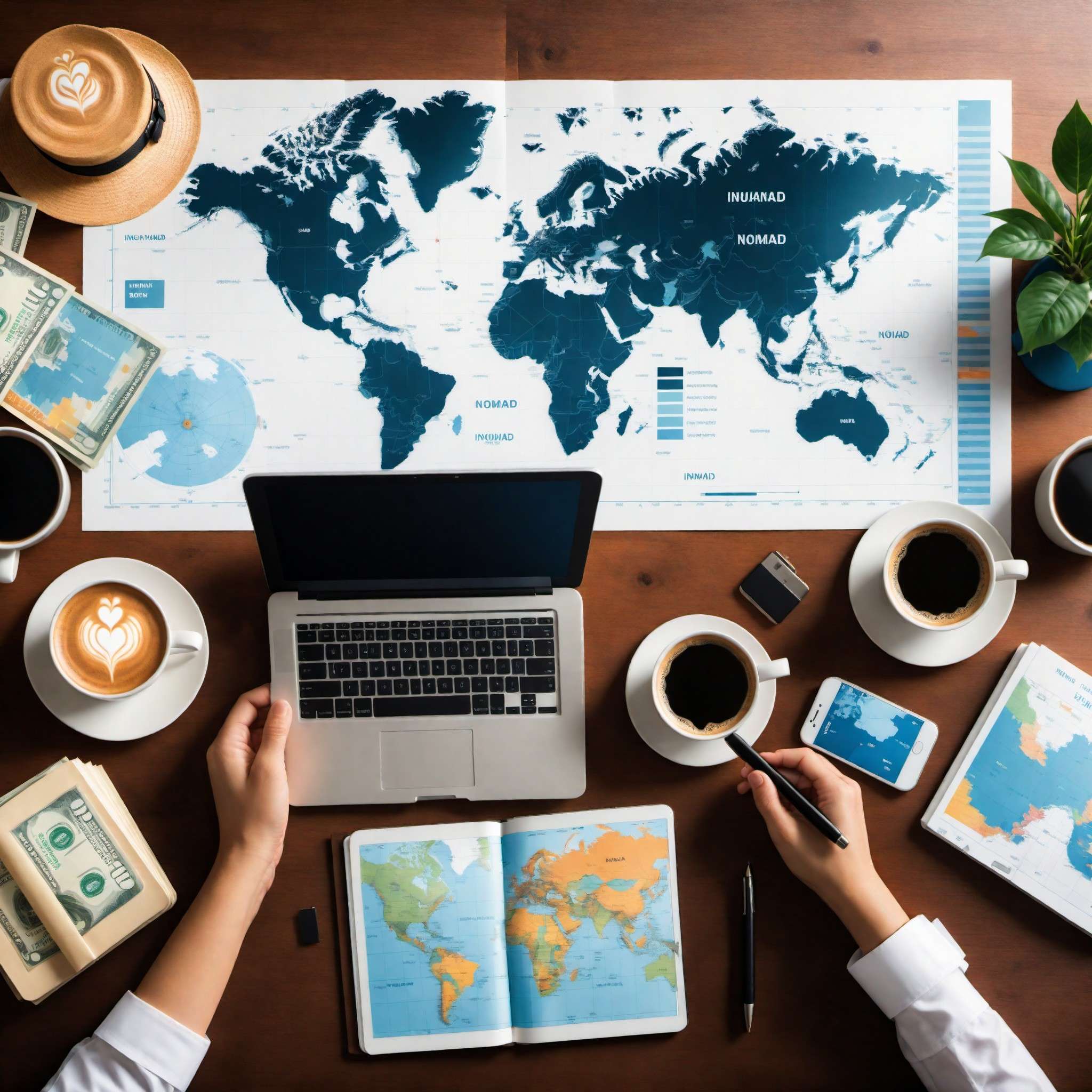
© Copyright , ZombieBunny.Org
Understanding insurance needs
Understanding your insurance needs is an essential aspect of financial planning for digital nomads. Given the unique lifestyle of constant travel and remote work, digital nomads face a specific set of risks that need to be addressed through insurance.
Health insurance is paramount. Ensure your policy covers you internationally and includes coverage for emergency evacuation, which can be expensive. Some countries even require proof of health insurance upon entry. International health insurance policies or travel insurance policies with robust medical coverage are typically suitable for digital nomads.
Another important area is travel insurance. This can cover trip cancellation, lost luggage, and other travel-related mishaps. Some travel insurance policies also offer some level of medical coverage, but make sure it’s sufficient for your needs.
If you’re carrying expensive equipment like laptops or cameras, consider getting them insured. Some travel insurance policies include coverage for personal belongings, or you may need a separate policy.
Also, consider liability insurance. If you accidentally cause injury to someone or damage property, liability insurance can protect against potentially large claims.
Lastly, if you’re a freelance digital nomad, consider professional liability insurance. This can protect you if a client sues you for issues like negligence or failure to deliver services.
Understanding your insurance needs and getting adequate coverage can provide peace of mind and financial protection. It’s an investment in your safety and financial stability as you embark on your digital nomad journey.
Choosing the right insurance
Choosing the right insurance as a digital nomad involves careful research and consideration of your unique lifestyle. Your insurance policies should provide comprehensive coverage for the specific risks you face while living and working abroad.
When choosing health insurance, consider plans designed for expats or long-term travelers. These plans usually offer global coverage and can be renewed no matter where you are in the world. Make sure the policy covers emergency evacuation and repatriation, as these can be costly.
In terms of travel insurance, look for policies that cover trip cancellation, trip interruption, baggage loss, and delays. Some travel insurance providers offer plans specifically designed for digital nomads and long-term travelers, like World Nomads or SafetyWing.
If you’re insuring your equipment, check the policy’s coverage limit for personal belongings and whether it covers accidental damage or theft. You may need to get extra coverage or a separate policy for expensive items.
When choosing professional liability insurance, ensure it covers the specific risks associated with your line of work. This can include claims of negligence, breach of contract, or failure to deliver services.
Lastly, always read the fine print. Understand the terms, conditions, exclusions, and the claims process. Customer reviews and ratings can also give you a sense of the insurer’s reliability and service quality.
Choosing the right insurance can give you peace of mind, knowing that you’re financially protected against unexpected events on your digital nomad journey.
Navigating international health insurance
Navigating international health insurance is crucial for digital nomads. As you traverse across borders, your health insurance should provide comprehensive coverage no matter where you are. International health insurance plans are designed to offer a wide range of medical coverage globally, making them an ideal choice for digital nomads.
When choosing a plan, consider the scope of coverage. Does it offer worldwide coverage, or are certain countries excluded? Ensure it covers outpatient care, hospitalization, emergency evacuation, and repatriation.
Check the policy’s limit and deductible. The limit is the maximum amount the insurance company will pay for covered services, while the deductible is the amount you pay out-of-pocket before insurance kicks in. Choose limits and deductibles that align with your health needs and financial situation.
Consider any pre-existing conditions. Some insurers may exclude pre-existing conditions, charge higher premiums, or have a waiting period before coverage begins.
Look for a plan that offers direct billing. This means the insurer pays the medical provider directly, saving you from out-of-pocket costs and reimbursement claims.
Also, consider the plan’s renewal policies. As a digital nomad, you’d want a plan that can be renewed no matter where you are in the world.
Lastly, understand the claims process. It should be straightforward and customer-friendly. The insurer should provide clear instructions and support throughout the process.
Navigating international health insurance can be complex, but with the right plan, you can ensure that your health – and your wallet – is protected wherever your nomadic lifestyle takes you.
Negotiating and Earning More

© Copyright , ZombieBunny.Org
Negotiating rates with clients
Negotiating rates with clients is a vital skill for digital nomads, particularly for those working as freelancers or running their own businesses. Your ability to negotiate effectively can significantly impact your earning potential and financial stability.
Start by knowing your worth. Research the market rates for your services in your industry and location. Factor in your experience, skills, and the value you bring to the client. This can provide a benchmark for your rate negotiations.
When discussing rates with a client, be clear and confident about your pricing. Explain the value and benefits your services bring to them. This can help justify your rates and highlight the quality of your work.
Don’t be afraid to negotiate. If a client proposes a lower rate, counter with a proposal that aligns with your pricing strategy. This could mean adjusting the scope of work or offering bundled services.
Remember, it’s okay to walk away if the client’s budget does not align with your rates. It’s crucial to value your work and time appropriately.
Lastly, regularly review and update your rates. As you gain more experience or expand your skills, your rates should reflect your growth.
Negotiating rates effectively can ensure you’re adequately compensated for your work. It’s an essential part of earning more and achieving financial freedom as a digital nomad. So, know your worth, communicate it effectively, and don’t settle for less.
Diversifying income streams
Diversifying income streams is a smart strategy for digital nomads, offering a safety net in case one source of income falls through. With multiple income streams, you’re less dependent on a single client or job, which can provide financial stability and increase earning potential.
Start by identifying your skills and how you can monetize them. For instance, if you’re a writer, you can diversify by offering content writing, copywriting, editing, and translation services. You could also create and sell digital products like eBooks or online courses.
Consider passive income streams. These are sources of income that require little to no effort to maintain, such as rental income, affiliate marketing, or revenue from a successful blog or YouTube channel.
Freelance platforms can offer another income stream. Websites like Upwork, Fiverr, or Freelancer connect freelancers with clients looking for their services.
Investing can also provide an additional income stream. This could be investing in stocks, bonds, mutual funds, or real estate. Remember, investing involves risks and should align with your financial goals and risk tolerance.
Lastly, remember that diversifying income streams also means managing multiple jobs or projects. This requires good time management and organizational skills.
By diversifying your income streams, not only can you increase your income, but also secure it. It’s a key strategy in navigating the financial ups and downs of the digital nomad lifestyle and unlocking your financial freedom.
Earning passive income
Earning passive income can be a lucrative strategy for digital nomads, providing a source of income that requires little to no effort to maintain. It’s an excellent way to diversify your income streams, increase your earnings, and achieve financial freedom.
One popular way to generate passive income is through rental properties. If you own property, renting it out can provide a steady stream of income. You could rent it out long-term or use platforms like Airbnb for short-term rentals.
Investing in financial markets can also generate passive income. This could be through dividend-paying stocks, bonds, or mutual funds. Remember, investing involves risks and should be done based on your financial goals and risk tolerance.
If you have a blog or website, affiliate marketing can be a great source of passive income. This involves promoting a product or service on your site and earning a commission for every sale made through your referral link.
Creating and selling digital products, like eBooks, online courses, or stock photos, can also generate passive income. Once the product is created and set up for sale, it can earn income with minimal maintenance.
Passive income requires an upfront investment of time, effort, or money. But once set up, it can provide a steady income stream that can boost your earnings and provide financial stability, helping you further unlock your financial freedom as a digital nomad.
Protecting Yourself from Financial Fraud

© Copyright , ZombieBunny.Org
Understanding financial fraud risks
Understanding financial fraud risks is crucial for digital nomads to safeguard their hard-earned money. As digital nomads heavily rely on online platforms for banking, payments, and financial management, they can be a prime target for scammers and fraudsters.
Phishing scams are common, where fraudsters use fake emails or websites to trick you into providing sensitive information like usernames, passwords, or credit card details. Beware of any unsolicited communications asking for such details.
Identity theft is another risk, where your personal information is stolen to commit fraud. This could involve fraudulent transactions on your credit card, opening bank accounts in your name, or even applying for loans.
Fraudsters may also target you with investment scams, offering opportunities with high returns, minimal risk, and pressure to act quickly. Always research any investment opportunity thoroughly and seek advice from trusted financial advisors.
To protect yourself, maintain strong, unique passwords for all your online accounts and consider using a password manager. Regularly monitor your financial accounts for any suspicious activities. Use secure and private internet connections, especially when accessing your financial accounts. Be cautious of sharing personal information online and never click on suspicious links or download attachments from unknown sources.
By understanding financial fraud risks and taking preventive measures, you can protect your financial assets and enjoy your digital nomad lifestyle without undue worry. Remember, your financial security is a crucial part of your journey towards financial freedom.
Protecting your financial information online
Protecting your financial information online is a critical aspect of financial management for digital nomads. As most of your financial transactions likely occur online, ensuring the security of your financial information is paramount.
Firstly, use strong, unique passwords for all your accounts. Consider using a password manager, which can generate and store complex passwords for you. Enable two-factor authentication whenever possible for an added layer of security.
Be cautious when using public Wi-Fi networks. These networks may not be secure, making it easier for hackers to intercept your information. If you must use a public Wi-Fi, consider using a Virtual Private Network (VPN) to encrypt your data and protect your online activity.
Keep your devices and software updated. Updates often include security patches that protect against new threats. Install a reliable antivirus software and ensure it’s updated regularly.
Beware of phishing attempts. Always check the sender’s email address, and never click on suspicious links or download attachments from unknown sources. Your bank will never ask for sensitive information through email.
Regularly monitor your bank and credit card statements for any unauthorized transactions. If you notice anything suspicious, report it to your bank immediately.
Protecting your financial information online can prevent financial fraud and identity theft. It’s a crucial step towards maintaining your financial health and achieving financial freedom as a digital nomad. Remember, your financial security is just as important as your financial growth.
Using secure Wi-Fi networks
Using secure Wi-Fi networks is a fundamental part of protecting your financial information online, especially for digital nomads who often work from different locations. Public Wi-Fi networks, like those in coffee shops, airports, or hotels, can be convenient, but they are also often unsecured, leaving your sensitive information vulnerable to hackers.
When possible, use a private, password-protected network. If you have to use a public Wi-Fi network, avoid accessing sensitive information like your bank account or making any financial transactions.
Consider using a Virtual Private Network (VPN) when accessing Wi-Fi networks. A VPN encrypts the data you send and receive, making it much harder for hackers to steal your information. There are many reliable VPN services available, both free and paid.
Be cautious of Wi-Fi networks that don’t require a password. These are usually unsecured, making it easier for hackers to access your device and steal your information.
Also, ensure your device is not set to automatically connect to available Wi-Fi networks. This can prevent your device from connecting to potentially unsafe networks without your knowledge.
Lastly, keep your devices updated. Updates often include security enhancements that protect against new threats.
By using secure Wi-Fi networks and taking these precautions, you can protect your sensitive information from being intercepted by hackers. In the digital nomad lifestyle, where online work and transactions are the norms, ensuring your online security is a crucial part of your journey towards financial freedom.
Conclusion: The Journey to Financial Freedom
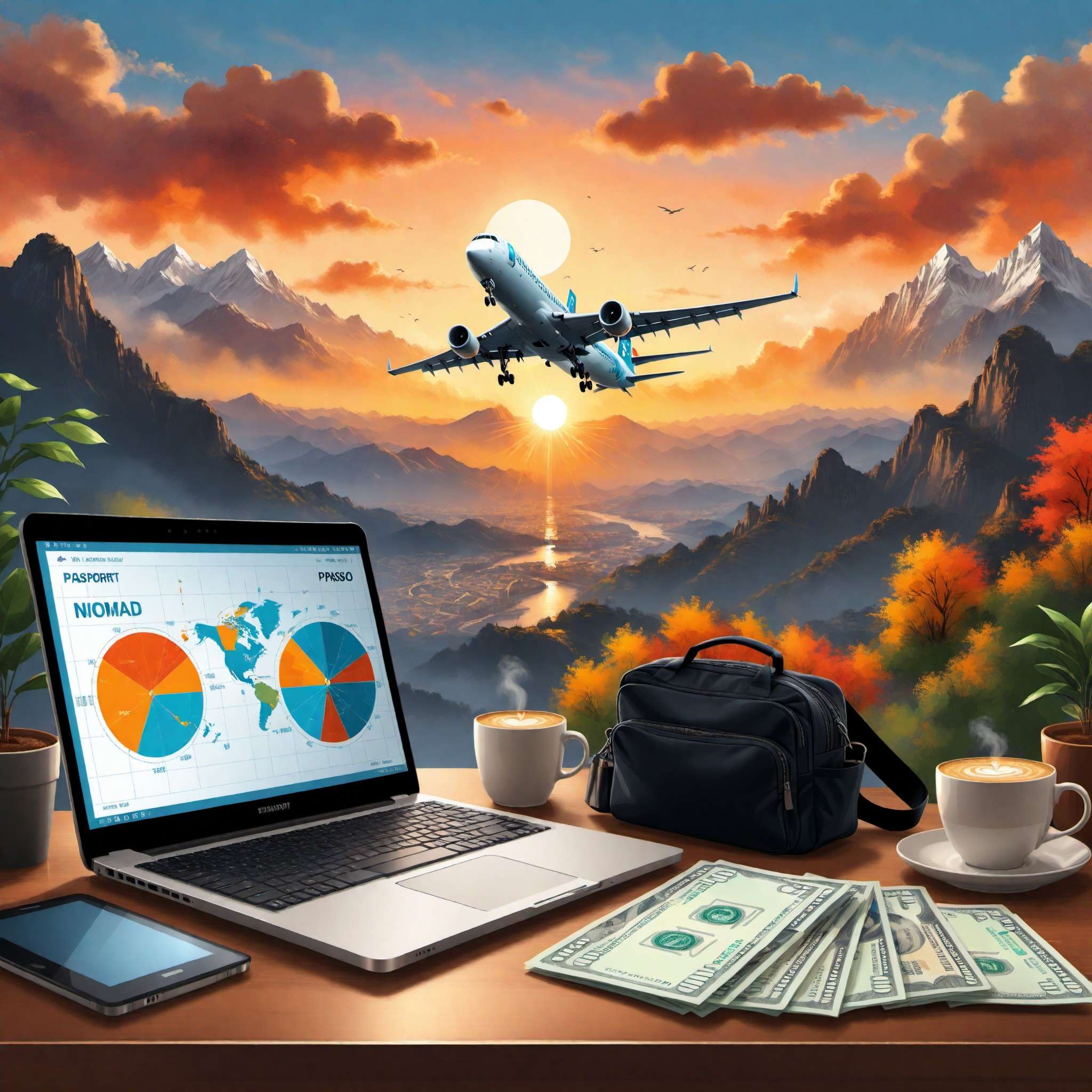
© Copyright , ZombieBunny.Org
Recap of financial freedom strategies
The journey to financial freedom as a digital nomad involves strategic planning, disciplined execution, and continuous learning. It’s about harnessing the power of your unique lifestyle to maximize your earning potential, protect your assets, and grow your wealth.
Effective budgeting and expense management are the first steps. Understanding your income and expenses, and making conscious decisions about where your money goes can help you live within your means and save for your goals.
Managing taxes efficiently plays a huge role. By understanding tax laws, considering tax-friendly countries, and using tax software, you can navigate the complex world of taxes and possibly save a substantial amount of money.
Investing for long-term financial independence is another key strategy. Understanding the basics of investing, choosing the right investment options, and planning for retirement can help you grow your wealth and secure your financial future.
Insurance is a crucial part of protecting your financial health. By understanding your insurance needs and choosing the right insurance, you can protect yourself against financial risks associated with health issues, accidents, or liability claims.
Negotiating effectively with clients and diversifying your income streams can boost your earning potential. And as most of your financial management likely happens online, protecting yourself from financial fraud is paramount.
Achieving financial freedom doesn’t happen overnight. It’s a journey that requires time, effort, and patience. But with these strategies, you can navigate the financial challenges of the digital nomad lifestyle and unlock your financial freedom.
Maintaining financial discipline
Maintaining financial discipline is a cornerstone of financial freedom for digital nomads. The freedom and unpredictability that come with the digital nomad lifestyle can easily lead to financial missteps if not managed with discipline.
Start by setting clear financial goals. Whether it’s saving for retirement, investing in a business, or buying property, having concrete goals can motivate you to stay disciplined with your finances.
Create a budget and stick to it. Monitor your income and expenses regularly, and adjust your budget as needed. Use budgeting apps or tools to make this process easier.
Make saving and investing a habit. Set up automatic transfers to your savings or investment accounts. This can help ensure you’re consistently growing your wealth, even if it’s a small amount each time.
Avoid impulsive spending. Before making a purchase, especially a large one, consider whether it’s truly necessary and how it aligns with your financial goals.
Stay informed about your financial situation. Regularly review your bank and credit card statements, investment portfolio, and insurance policies. This can help you stay on top of your finances and make informed decisions.
Finally, seek professional advice when needed. A financial advisor can provide guidance and strategies tailored to your specific situation and goals.
Maintaining financial discipline may not always be easy, especially when you’re exploring new places and cultures. But with commitment and a solid plan, it can lead to financial freedom, allowing you to enjoy the digital nomad lifestyle to the fullest.
Continuous learning in finance
Continuous learning in finance is a crucial part of achieving and maintaining financial freedom as a digital nomad. The world of finance is vast and constantly evolving, and staying informed can help you make smarter financial decisions.
Start by educating yourself on the basics of personal finance, including budgeting, saving, investing, and taxation. There are numerous online resources, books, podcasts, and courses available to help you understand these concepts.
Stay updated on financial news and trends. This can help you understand the current economic environment, identify financial opportunities, and make informed investment decisions. Websites like Bloomberg, Financial Times, and CNBC can be good sources of financial news.
Make use of financial tools and apps. They can simplify financial management, provide insights into your spending habits, and help you track your financial goals. Regularly explore new tools and technologies that can make your financial management more efficient.
Consider learning about more complex financial topics, like cryptocurrency, real estate investing, or global stock markets. These areas can offer additional opportunities for income and wealth growth.
Lastly, don’t hesitate to seek professional advice when needed. Financial advisors, tax consultants, and investment brokers can provide expert guidance tailored to your specific situation and goals.
Continuous learning in finance can empower you to take control of your financial future. It can equip you with the knowledge and skills to navigate the financial challenges of the digital nomad lifestyle and unlock your financial freedom.
Please support our site and purchase something from our store.






